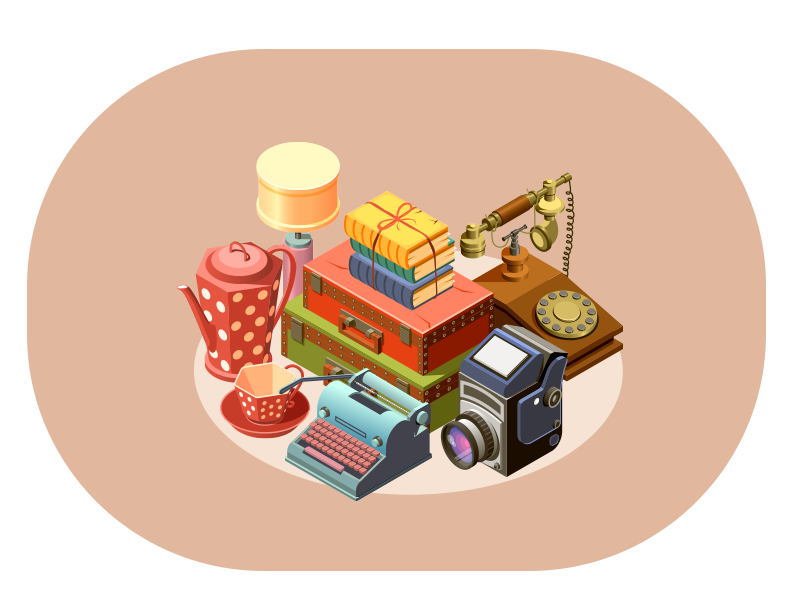How to get rid of old furniture?
The Smartest Ways to Get Rid of Old Furniture

Saying Goodbye to Old Furniture
Last summer, I bought all new furniture for my home. That’s good news. The bad news is that we were forced to throw out most of the old stuff because it was either a), falling apart, or b) wouldn’t fit in our house after the new furniture arrived. What was the lesson my wife and I learned from this dilemma? Furniture removal, sometimes more appropriately called junk removal, is no easy chore. We tried a bunch of different tactics and finally discovered two workable solutions.
Getting Rid of Old Furniture
There are plenty of ways to get rid of furniture and junk you don’t want. When I was figuring out what to do with my ancient and bulky chest of drawers, I made a few notes about all the options I considered. Some were better than others, but you can take a look and see which methods might work for you. For convenience, I marked each one as “not so good,” “good,” and “better,” but your mileage may vary:
Good: Give It To a Charity and Get a Tax Deduction
This is a “good” method but there’s a trick to it. You need to remember two things: first, the IRS is very picky about the amount you list for the tax deduction. It must be the “true market cost” of the as-is item. For old couches and such, that usually means between $20 and $75. Plus, you’ll need to get a written receipt from the organization you donate it to and write the market value on the receipt yourself if they don’t do it for you. But, good news is that there are charities that will do the pickup for free.
The second thing to remember: under the new tax laws, it’s not as advantageous to itemize as it used to be, so getting a receipt and going through all the bookkeeping might not be worth the hassle. Even so, it’s one way to get your old stuff hauled away for FREE and that’s a challenge in most cities. Here’s an explanation from TaxSlayer about how to get the write-off if you itemize.
Good: Sell Everything on Craigslist

If you have some time, and a place to store the items while trying to sell them online, Craigslist is the default option. All buyers are local, so whoever wants to look before buying can drive to your home and view the goods. The upside: you can find buyers and get some cash for those aging assets. The downside: it can take a few weeks or more to sell your items and your phone will ring, ring, and ring with people who have “a few questions about your couch.”
Better: Hire a Company That Specializes in Junk Removal
I call it furniture, but everyone who saw it called it junk. No matter, as long as they were either willing to haul it off or pay me a few bucks, I was happy. Furniture removal can be tough, all kidding aside. There are companies that do this seemingly thankless task day-in and day-out. For a reasonable fee, they’ll show up at the time you tell them to, load everything into a large truck and haul it away. Nearly all of the component pieces will be recycled, which is a nice bonus. Plus, you won’t ever have to look at it again, park it in your back yard until you find an “online buyer,” or argue with the city trash service about it.
After a lot of trial and error, my wife and I finally ended up using this method to get rid of all our old furniture. It was the strategy that involved minimal hassle, a small fee for hauling, and the drivers were polite. Not only did they show up on time but they wouldn’t let me lift a finger to load it into the truck. The two of them did all the work and even swept my driveway perfectly clean after they were done.
The epilogue: We also had a ton of old clothes and a few appliances. A nearby church sends a person over for all that stuff and gave us a receipt for “$150 worth of household appliances and used clothing.” We don’t itemize, so the receipt was of no real use to us, but we were happy to help out a neighborhood church and the needy families they assist.
Good/Not So Good: Take It to the City Dump or a Recycling Center

This strategy falling in between “good” and “not so good” because it depends where you live. Some cities have conveniently located dumps where you can simply drive your pickup into the entrance and drop off whatever you have, as long as it’s not hazardous waste. Other towns call these dumps “recycling centers,” but that’s just a word game.
Recycling centers were all called dumps until about 30 years ago. I have to emphasize something here, so you won’t be disappointed like I was: always, always, always call the dump before taking your stuff there. Ask about the hours, rules and any fees they charge. Some have no fees while others bill you an unreasonably high amount. Know before you go.
Many dumps have size requirements, too. That means if you have an old bureau or gigantic sofa, you might have to break it up into smaller pieces before dropping it off. Can you say “sledgehammer”? Busting up furniture is hard work, so don’t say I didn’t warn you.
Bottom line: call ahead and get details from any place where you plan to drop your old furniture.
Not So Good: If You Buy New Items, Ask Delivery People If They’ll Take the Old Stuff

I put this strategy into the “not so good” category because even though it seemed like a brilliant idea when it popped into my head, most delivery people won’t do this unless your junk item is an appliance, like a frig or dishwasher. But it never hurts to ask, I guess, so if you buy new furniture, see if the delivery team will take your old items. You might have to talk nice and offer them a bit of an incentive (translation: legal bribe).
Not So Good: The Old “Free” Trick
People love freebies. There’s probably something in the human DNA that causes us to gravitate toward anything associated with the word “free.” There was even a best-selling book back in the 1970s that was nothing more than a very long list of things you could get for free. The book was not one of them. Anyway, here’s the trick we tried with a few of our old furniture pieces: we put them on the curb, after much physical effort and perspiration, and placed a large sign on each item that said, “Free.”
Guess what? The response we received from neighbors and passers-by was exactly nothing. I had read about this clever tactic in a book (not the book of free things) that claimed people would be banging on my doors thanking me and asking for help lifting the goods into their pickup trucks. No one knocked. No one thanked me for anything. In fact, after two days, one of the trash haulers did knock on my door. He had some bad news: the trash service where I live doesn’t take furniture, new, old or otherwise.
Not So Good: Put It Out on the Curb for Trash Collection
Extending what I just noted in the section above, you’ll have to call your local trash service and see what their policy is for furniture. Sometimes they’ll take small pieces, or will charge to take larger ones. Always find out about charges before you let them touch the stuff.
My across-town friend had a bad experience. His local trash collectors joyfully said, “Yes, we take any furniture items you leave on the curb. No worries. Just put the stuff out there.” Two weeks later he received a bill from the city, an annoying three-digit amount of money, for the “service” of taking his furniture.
Look, I have no problem paying for services rendered, but in that case, the city pulled a fast one by not informing my friend of the charge in advance. The lesson: double-check on fees and charges before letting anyone put their hands on your old items.
Better: Ask Around and Give It Directly to Needy People
If you’re willing to do a little checking, you can usually find people who need furniture that is in decent condition. Consider asking pastors, rabbis and any member of the clergy. Social service agencies in your town are another good resource for this method of finding a home for your items. This isn’t about tax deductions, but about getting some basic furniture into the hands of people who are truly needy.
There are several excellent organizations that specialize in this chore. Consider contacting one of them if your local social service agency or clergy person is not able to help you.
The Final Word
You would think that getting rid of something would be a simple task, but it isn’t. We spend about a month trying out various methods for getting the old furniture out of our lives. Fortunately, we found a solution that worked for us and also discovered a way to help out a local charitable cause in the process.

About Jennifer Hanzlick
Clutter Trucker is a Denver-based hoarding clean-out company founded by Jennifer Hanzlick. Jennifer leveraged 15 years of corporate experience in to start the company in 2008. Her mission is to help and educate individuals and their loved ones who have hoarding disorder. A featured speaker at Ted X Boulder, Jennifer works directly with community and non-profit organizations to boost public awareness about the condition. To that end, she founded the Colorado Hoarding Task Force in 2015.
 720-982-7856
720-982-7856



